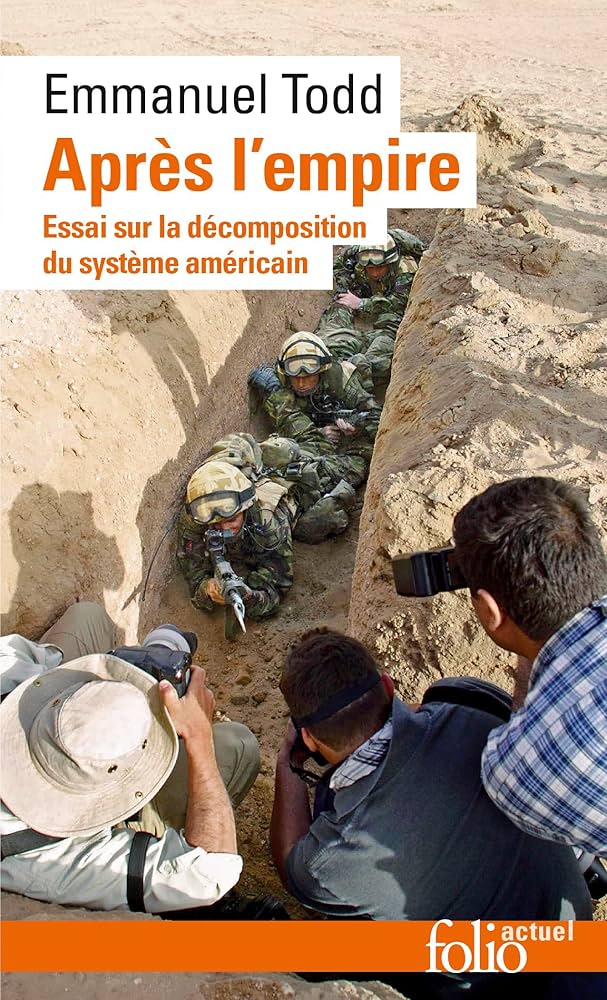Après l'empire: Essai sur la décomposition du système américain

Following The Clash of Civilizations, it seemed essential to read one of Samuel Huntington's critics. Emmanuel Todd, a major figure in historical and demographic research in France for nearly 40 years, is known primarily for his geopolitical writings rather than his academic work—a fact he readily admits. This is especially evident in his book After the Empire, published in 2002, which propelled him into the media spotlight, making him a well-regarded intellectual in numerous media outlets.
United States towards several nations sparked a rise in anti-Americanism worldwide. Todd aligns himself with this critique by developing the idea of an inevitable decline of America. Drawing on demographic, economic, and military data, he attempts to demonstrate that the United States is no longer capable of controlling its empire. He argues that America now needs the world more than the world needs America, highlighting the country's growing reliance on foreign imports—a trend he predicts will intensify over time. Furthermore, the rise of China, Russia, and Europe as economic powers, he suggests, is destined to irreversibly weaken American dominance.
However, Emmanuel Todd's thesis presents problems on two levels. On the one hand, some of his arguments, far from being strictly academic, reveal a personal animosity towards American policy. On the other hand, Todd is primarily a visionary of his time. In 2002, Europe was the world's largest market and an industrial power that rivaled the United States. He believed that, contrary to Samuel Huntington's view, Europe constituted a counterbalance to American power and was not part of a homogeneous Western bloc (United States and Europe). France's opposition to the Iraq War in 2003 could have validated this analysis. However, the reality of the following two decades proved him wrong.
Today, we talk about an economic and technological lag in Europe compared to the United States, especially evident in key sectors such as GAFAM, artificial intelligence, and data. The war in Ukraine has confirmed an undeniable fact: European defense cannot be conceived without NATO or the United States. No European country is capable of containing Russia or China alone outside of Europe's borders. The French failure in the Sahel is a clear illustration of this. Europe, in securing its safety, turns to America and no longer represents the economic competitor it could have been. Meanwhile, the United States is focusing its attention on Asia.